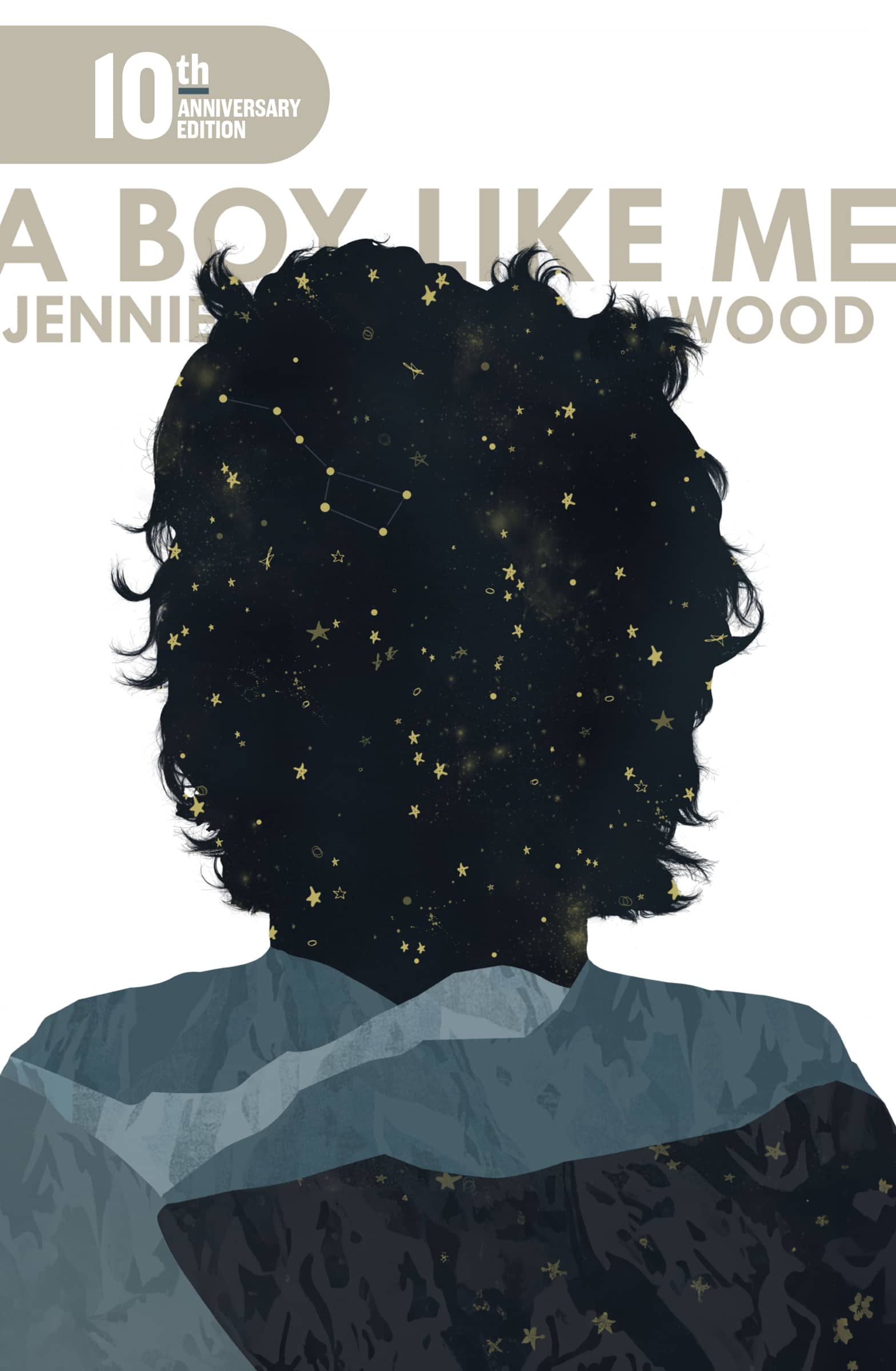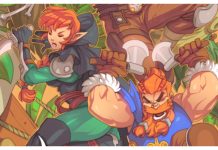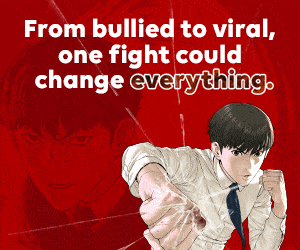Invader Comics is gearing up to release the 10th anniversary edition of A Boy Like Me, Jennie Wood’s acclaimed trans coming-of-age novel, originally published by 215 Ink. While the name might suggest a comic, A Boy Like Me is actually a YA novel that was ahead of its time, offering an honest and heartfelt exploration of identity and self-discovery.
This special edition is launching in collaboration with Zoop, and in a meaningful move, Jennie Wood is donating their profits to Unite Against Book Bans, an organization fighting back against increasing censorship—especially when it comes to Queer literature.
We reached out to Wood and Mike Perkins, the Editor-in-Chief for Invader Comics, for more information on their project. So keep reading for all the details on this important and timely reissue!
Diego Higuera: Thank you so much for being here. I’ll start off with the first question, but I wanted to ask if you would be willing to share what inspired you to write a boy like me originally, and how has your perspective on the story evolved over the past decade for this anniversary.
JENNIE WOOD: Oh, that is a good question because we have to go back like 12 years in time, right? I started writing it long before it was published, so it’s a really personal answer as well.
I’ll preface this by saying I was never comfortable with the label “lesbian,” and I never felt like a girl, so I didn’t have a lot of terminology. I hadn’t heard the term “nonbinary” yet, but I had heard “transgender,” and I had read some stories about trans individuals. So, I was wondering if I was trans, and that led me to write Flutter, which is about a girl who shapeshifts into a boy to get her dream girl—because her dream girl is straight.
Actually, Mike had a hand in Flutter because 215 Inc. was the first publisher of it. Flutter is a graphic novel I collaborated on with artist Jeff McComsey, and it explores how girls and boys are treated differently in society. But even then, I still wasn’t getting at the question I wanted to explore for myself: Am I a trans individual?
I wanted to delve deeper into that, and I’ve always been more comfortable in the realm of fiction than writing about myself—or even talking about myself. So, A Boy Like Me was born. I wanted to explore the story of a boy who was assigned the wrong gender at birth, who grew up in a small town, and who experiences the best and worst day of his life when he gets his period and meets the love of his life in the bathroom. It allowed me to explore what it would be like to be trans in high school and to navigate a very binary world through Peyton, the main character. It’s first-person, his point of view.
Through writing and publishing that book—again, hand in hand with Mike, who edited the manuscript and published it through 215, Inc.—I realized I was nonbinary. A big part of that realization came from going to comic conventions and writing conventions to talk about the book. I was asked for my pronouns. I was hearing the term “nonbinary.” It was through the process of publishing A Boy Like Me and Flutter that I was introduced to the term I now identify with.
So, it was a long journey. It wasn’t an easy journey. Now, looking back on it and preparing for this 10th anniversary, it’s been kind of difficult. In some ways, it feels like going back into the closet—reading the book, revisiting why I wrote it, and seeing Peyton’s very binary lens. Peyton is a Southern male—that’s the way he sees the world. I was raised around male cousins who were slightly older than me, and they saw the world in very black-and-white terms, in boy-and-girl terms. Looking at it now through a nonbinary lens, I would write a completely different book today.
That said, I know that trans narratives, trans characters, and trans books are more important than ever. I know that because trans individuals tell me so. Unfortunately, over the last decade, what I’ve witnessed and experienced as a queer person is that things have gotten harder—especially for trans individuals. So, I think the book is even more needed today. That’s what I’ve been told.
HIGUERA: That’s a really insightful way to put it—like Through the Looking Glass, going backward while also seeing things in a new way. i can only imagine that writing it must have been therapeutic, but also kind of disorienting at times, like trying to make sense of things you didn’t even have words for yet. was there something you wanted to add Mike?
MIKE PERKINS: Oh, well, just very quickly—I’m not sure if you’re familiar, but Invader used to be 215, Inc. We rebranded and relaunched three years ago.
I think what Jenny was speaking about is so important, and it really highlights how powerful—and sometimes dangerous—something like this can be. I always think back to that Michelle Obama quote: You can’t be it if you don’t see it. Jenny was talking about how trans individuals emphasize the importance of having trans stories, and when we were putting this together more than a decade ago, that was already part of the conversation.
Your aim is always to put something out into the world that creates positive change, something that makes a difference. And as you were saying, Jenny, you feel more comfortable writing fiction rather than nonfiction, which makes a lot of sense—it helps a lot of people. But as much as it provides something beneficial, it also attracts villains.
That was something we were aware of when we were putting this together. But, honestly, we really hoped that 10 years down the line, the world would be in a much different place—that we wouldn’t still be fighting the same fights we are today.
HIGUERA: Actually, jumping off of that—because I saw that the proceeds from the anniversary release are going toward fighting book bans, right? Helping to combat censorship and support access to these stories?
PERKINS: yes! We’re partnering with Unite Against Book Bans, and they’ve been absolutely wonderful to work with on this. They’re helping spread the word and really amplifying the impact.
HIGUERA: I really want to go in-depth on a question I was planning to ask because I think it’s important—especially from both of your perspectives. How do you see the role of independent publishers like Invader Comics evolving in the face of increasing censorship and the growing need for diverse narratives? I couldn’t help but be reminded of I Saw the TV Glow. It really resonated with me, and I started diving into Twitter, checking out people’s thoughts on the book, exploring discussions—there’s a lot out there, I’d love to hear your thoughts on this.
PERKINS: For my part, it just means that what I’m doing—what we’re doing—is all the more important. At its simplest, at its most trivial, independent publishing is a place to find stories that aren’t safe. And by “safe,” I mean stories that aren’t guaranteed money-makers. I think that’s only gotten worse in the 10 years since we first put out A Boy Like Me.
In general, the media landscape today feels like an algorithm designed to calculate: If we target this demographic, cast this actor, and cover this topic, we’ll make enough ticket sales to turn a profit. The priority isn’t necessarily getting a really great writer, director, or cinematographer to make something truly impactful—that’s often an afterthought, if it’s even a thought at all. The calculation has already been made: If we hit these boxes, we’ll make money, and that’s all that matters.
Before this kind of formulaic approach, studios and publishers had to take creative risks. They had to invest in the best talent or find truly compelling stories to mitigate financial risk. Now, they don’t have to. So everything just keeps getting “safer”—and that’s just on the most basic level.
But now, we’re also in a situation where major publishers and studios aren’t willing to take risks on stories that might be controversial—or stories that need to be told. That’s where a place like Invader comes in. We can be a safe space for those stories because, honestly, I’m already not making a lot of money doing this. I don’t mind taking a risk on something if I truly believe it’s a story that needs to be told.
WOOD: I just think that now more than ever, we need small presses, small publishers, and independent publishing to take chances—on up-and-coming writers and artists, on emerging voices, on different ideas. Because, as Mike was saying, the bigger presses and the gatekeepers are becoming less and less willing—if they’re even willing at all—to take those risks.
HIGUERA: Jennie, I have to ask—A Boy Like Me was ahead of its time when it was first published. How do you see its relevance in today’s social and political climate?
WOOD: I think it’s more important now than ever—or it holds an even bigger place than it did 10 years ago when it was first published. Unfortunately, trans individuals and trans issues have been vilified by right-wing extremists.
When the book first came out, there weren’t many trans narratives. There weren’t a lot of books about trans characters, and even fewer by trans authors. Over the last decade, that has changed—there’s been increased visibility. We have more trans authors, more trans characters in books, graphic novels, TV, film, and interviews—and that’s great.
But the reality is, we need these stories now more than ever. We need them to give trans individuals representation, to provide people who want to understand trans issues the resources they need, and to help allies learn how to support the community. These books are essential in pushing back against the misinformation and hate that’s out there.
PERKINS: Going back to what I said about the Michelle Obama quote—You can’t be it if you don’t see it—I grew up in Rochester, New York, about five hours from New York City, and to me, that felt like the backwoods. It was small-town country, even though it’s the third-largest city in New York. But that’s nowhere close to what you experienced, Jenny, growing up in the North of the South, right? It’s not even comparable.
I was surrounded by gay people growing up. I was surrounded by nonbinary people, even if they didn’t label themselves as such. But to me, it still felt like it wasn’t even close to what it should have been. I can’t imagine growing up where you did—having to go through all that in your head, let alone the kind of masking you have to do outwardly when you don’t even have an example to look to for what it is that you feel.
WOOD: Yeah, and I do think we’re at a time where people are really questioning how much they have to mask and pretend, especially with the incoming administration. I’ll share with both of you, and to readers, that I came out as nonbinary in the early days of the pandemic. It took me a while, but I finally made the decision, and I chose to put “X” for my gender on my passport and driver’s license. When I made that decision, I knew there were certain countries I couldn’t travel to—and I had to be okay with that.
But now, with this election, I’m wondering: Am I going to not be able to travel to red states because of my driver’s license? My partner’s from Texas, and I spend holidays there. Am I going to try to rent a car and face problems because of my ID? Some of this might seem like irrational fear, but it’s rooted in things I’m hearing—like Project 2025 and people trying to pass laws to revoke nonbinary options on driver’s licenses.
I’m going off on a tangent, but my point is, whether it’s irrational or not, these fears are very valid. And again, I just keep coming back to the fact that we need voices, we need narratives, we need spaces where people can go to find solace and support.
HIGUERA: I was hoping you could elaborate on the new foreword included in this edition, and the key themes and reflections you wanted to highlight.
WOOD: That’s the most personal thing I’ve ever written, and I’m laughing because I have a nervous laugh. But I think, in a way, that was harder to write than the novel, which is kind of scary to admit. I mean, it touches on a lot of what I’ve already said in this interview—the need for trans narratives is so important.
I think I mentioned this in the foreword: it was really important to me when I wrote the book that Peyton didn’t speak for all trans people or for the entire community. He was his own person with his own individual issues and his own unique way of seeing the world. I think it’s crucial to avoid having a character speak for an entire community.
So, I wanted to write a preface reflecting on the book, where I am now, and explaining why I wrote it. I’m writing about a trans character, but I’m not a trans individual, and I didn’t want A Boy Like Me to take space away from a trans author. That’s always been important to me.
But I’ve also had the experience of being at comic conventions and other events where I’m selling the book, and I’ve had cisgender individuals—typically, white, straight men—come up to me and say, “I read Flutter, I was introduced to your comics, and then I picked up A Boy Like Me. It’s not a book I would normally read, but you’ve opened my eyes and made me more comfortable with this subject. Now I’m seeking out books by trans authors.”
That kind of feedback is incredible. If I can help open people’s minds, expose them to trans issues, and make them more comfortable with them—while encouraging them to seek out and support books by trans authors—that’s an amazing thing.
HIGUERA: As far as the collaborations and publishing go, what’s it been like working with Invader Comics to bring this special edition to life?
PERKINS: I’ve always tried to run both companies as though we’re investing in stories and creators, not just in titles. I really don’t like how a lot of comic companies are run, where they throw 100 stories at the wall every year, knowing that maybe five of them will be a success. I want to invest in the creators themselves and help them feel like they’re in a safe space where they can tell the stories they’re most passionate about. I strongly believe that readers can feel that.
If you’re running a company that, when sales drop, cancels a book or when a book does well, you demand the next one be just like it, that doesn’t make sense to me. So when Jenny said they wanted to put out A Boy Like Me, that was a no-brainer. Even though it was the first novel that 215 published and the first novel Invader will publish, it’s part of the beginning of our prose arm. We’re putting out two more prose novels this year and hoping to do even more next year.
I think people often view comics as too limiting. If you talk to someone who doesn’t know anything about comics and tell them you run a comic publishing company, they assume you’re publishing superhero stories. We don’t have any superhero books. I think of every single one of our books as an independent film. So, to me, putting out a novel versus a graphic novel doesn’t seem like a real distinction. It’s just a story, and we’re in the business of putting out great stories.
WOOD: Yes, yes, where to start? I’m just thinking about the years now with Invader, and before that with 215, and I’ve always felt very seen, even when I didn’t see myself. I’ve always felt like Mike and everyone involved with Invader, and previously with 215, believed in me and in the projects I was working on, and in my collaborators and the team I assembled for Flutter. Then Mike took it to another level with A Boy Like Me—he edited the manuscript, which needed a lot of editing, and that was such a great experience working with him in that way. But I’ve always felt seen, and that’s just the biggest thing. I think the most important thing as an artist is to feel seen. Because when you feel seen, you feel supported and believed in, and they’ve always had my back.
I can’t imagine doing this anniversary edition with anyone else. Mike has always felt like a partner—always a collaborator. I love the vision of Invader. I love how they support the artist, prioritizing the artist over the bottom line. It’s amazing to me. It’s incredible. So, I’m really proud to have this anniversary edition with Invader, following up the first round with 215, and I’m deeply grateful. This book, especially in the times we live in, carries a lot of anxiety with it, so Mike has just been a great partner to have along this journey.
HIGUERA: I did want to ask, why Zoop as a platform for this campaign, and what do you think makes it an effective tool for promoting and supporting independent stories?
PERKINS: I’ll tell you why, very honestly. Jason Copeland with his book Full Tilt, I was following his whole process of putting that book together, and he had such nice things to say about Zoop. So, we had made crowdfunding platforms like that, specifically Kickstarter, a big part of our business model, because I saw that Diamond… I’m not sure how to word this, but Diamond wasn’t the best option, honestly. I never wanted to make the foundation of my business something that I didn’t have full control over.
When I relaunched 215 into Invader, I wanted direct sales to consumers to be a much larger part of the business. I wanted to know who I was selling to, and I wanted to offer something more than just a book. For every single book we do, we solicit through Diamond, Ingram, Amazon, and Barnes & Noble, but we also run some sort of campaign, whether that’s through Kickstarter, Zoop, or independently. We do unique covers, thicker cardstock, and offer things like metal bookmarks, stickers, and prints. These are the things I would want as a reader, but couldn’t deliver through Diamond.
I’d get huge orders of my books from years ago, and I’d be like, “Where did that come from? I’d love to say thank you, maybe send them something.” But they would say, “We can’t tell you.” So, I decided, if you’re not going to give me that kind of power, I’m going to take it. I saw that Jason had a great experience with Zoop, so we ran a campaign for our Nosferatu book with Italian artist Marco Fontinelli and had an excellent experience. They were very supportive, flexible, and knowledgeable.
Whereas Kickstarter is more like, “You’re on your own, go for it,” Zoop was much more hands-on. For this campaign, we felt Zoop was the right platform because it’s a place to run a campaign with more personal connection and control over the story.
HIGUERA: looking back on the past 10 years, what has been the most rewarding aspect of sharing this story with the world.
WOOD: Knowing that it helped, you know, knowing that it helped readers, knowing that it brought support and solace to people who were in the process of accepting themselves, whether it was a trans individual who came up to me at a comic convention and told me that, or when I was promoting this upcoming 10th Anniversary Edition, someone through social media reached out and said that the book helped them come out as non-binary and accept themselves. So, it’s knowing that. Yes, and even a reader who said, “Reading this helped me understand my friend who’s going through a transition right now.” So, knowing that it helped provide some support and solace for people on their journeys, that’s been the biggest thing. Including my own, right? But, but other people’s journeys, knowing that it supported them along the way. That’s been the biggest thing.
HIGUERA: Is there any last words you want to share with readers?
PERKINS: We really hope that we can just raise a lot of money for Unite Against Book Bans. It would just make us feel real good, real good to be able to do that. Because I think it’s… I remember when I was a kid, and you first find out about that, you know? And for me, it was, you know, like book burning and you and it’s this wild thing that seems so far distant. And my god, World War Two seemed like it was just so, so far in the past. And the older I get, obviously, you’re just like, wow, that was not that long ago, you know? That was, you know, a quarter century before I was born, type shit. And then you read about, like, oh, wait, there’s book bans happening now, you know? And when I was a kid, and you couldn’t believe it, because you first heard about the Nazis, those are the bad guys, and not even the bad guys, the worst monsters in history, as far as you were told. But it’s happening. You know? It can happen here. It is happening here. And I certainly thought when I was a kid, “Oh, well, I guess there’s still some bad guys around, but that’s probably the last of them, right?”
HIGUERA: I do find a bit ironic that people are burning Fahrenheit 451.
PERKINS: Well, let’s be honest. If you’re looking to ban books, you’re not a reader, valid. I don’t expect anyone who’s read that to be the person who’s saying we need to burn it.
WOOD: Now, I mean, what Mike said about wanting to raise money for Unite Against Book Bans and the importance of that, and just, yeah, that was just spot on. It’s a cause that means a lot to both of us, and it was important to me that when we, you know, pick where, you know, where we would love, the place we would like to support, the cause we would like to support with this campaign, that it was an issue and a cause that was important to both of us, and the whole Invader team and the whole Invader purpose. So I’m very happy and excited, and yes, I hope that we can raise a lot of money for Unite Against Book Bans.
The final call is almost here! Don’t miss your chance to explore this incredible project before time runs out. Check it out now and be part of something special before it’s too late!













